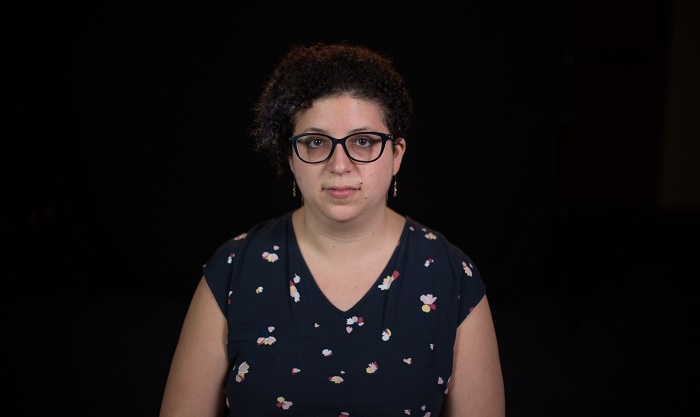
Roz (above) faced discrimination and judgement from a health professional due to her sexuality.
A powerful new video is revealing the challenges many people in the LGBTIQ+ community face when trying to access health services, putting their long-term health and wellbeing at risk.
Watch the video on our website.
The video was produced by North Western Melbourne Primary Health Network as part of a ground-breaking trial of programs and services aimed at preventing suicide in the local LGBTIQ+ community. It shows a range of negative experiences, from doctors making incorrect assumptions about their LGBTIQ+ patients through to outright discrimination.
In one case Roz, who identifies as bisexual, was having her first pap smear when her GP began to question her about her sexuality and sexual history.
“(The doctor) began giving me quite a lecture about morals and about what was right and wrong to do with sex, and about letting down my parents,” Roz said. “All right in the middle of the procedure, which was a really traumatic experience.”
Nunzio spoke about how doctor’s assumptions affected the quality of the health care they received when they were diagnosed with polycystic ovarian syndrome.
“The doctors wanted to treat me as if I was a cis-gendered woman who wanted to have kids and didn’t really take into account that’s not really the way I identified or what I wanted,” Nunzio said.
Kian related his experience of being admitted to an adult psychiatric facility, where doctors refused to acknowledge him as trans and deliberately used incorrect pronouns to describe him.
“It made me feel like I couldn’t trust doctors, it made me feel like I had to very much bury who I am, and just pretend to be normal I guess,” Kian said.
While many of the experiences described caused serious trauma, there are relatively simple things health care providers can do to make things better for their LGBTIQ+ patients, and themselves.
“I’ve had one really good experience with a neurologist that I saw, she noticed that I’d ticked ‘Mr’ on the box but my doctor had put the referral as female,” Kian said. “She just asked what pronouns I preferred, and when she had to write a letter again she checked what I wanted to have on it, and that was fantastic.”
NWMPHN CEO Adjunct Associate Professor Christopher Carter said listening to the experiences of LGBTIQ+ people is a crucial step towards creating a better health system.
“When a person has a negative experience with a health provider, it can make them less likely to seek care the next time they need help,” A/Prof Carter said.
“Improving that first experience puts LGBTIQ+ people on the right track to protecting their ongoing health, giving them the best chance of avoiding more serious and costly health outcomes.”
To help make primary care a more welcoming and inclusive environment NWMPHN has supported the development of Australia’s first Primary Health Care for Trans, Gender Diverse & Non-binary People, an online training module for GPs, practice nurses and medical students.
The module helps practitioners become familiar with and sensitive to the diverse terminology, experiences, health issues, standards, and referral pathways with respect to trans, gender diverse, and non-binary clients.
Brenda Appleton, chair of Transgender Victoria, said the new resource would be a welcome support for medical providers, who generally receive little or no training on understanding these issues.
“I hope GPs and other medical providers will access this informative resource and meet the needs and expectations of those whose gender identity does not meet society’s expectations,” she said.
“We do not expect special treatment but we do want to be treated with dignity and respect.”
GPs and other health practitioners can also improve their knowledge and skill in treating LGBTIQ+ patients through specialised clinical pathways available via HealthPathways Melbourne.
Pathways include LGBTIQ+ focused mental health, alcohol and other drugs, sexual health and more, as well as an overview of medical treatment and psychological support for people of all ages who experience difference or diversity in sexual orientation, sex and gender identity.
Local GPs can access the LGBTIQ+ pathways through the HealthPathways Melbourne website at melbourne.healthpathways.org.au, and can access more information about the Primary Health Care for Trans, Gender Diverse & Non-binary People training module on our website.
NWMPHN is also running several tender processes to develop and deliver a range of services aimed at improving health care experiences and reducing suicide risk in the LGBTIQ+ community.
More information can be found at tenderlink.com/mpcn




